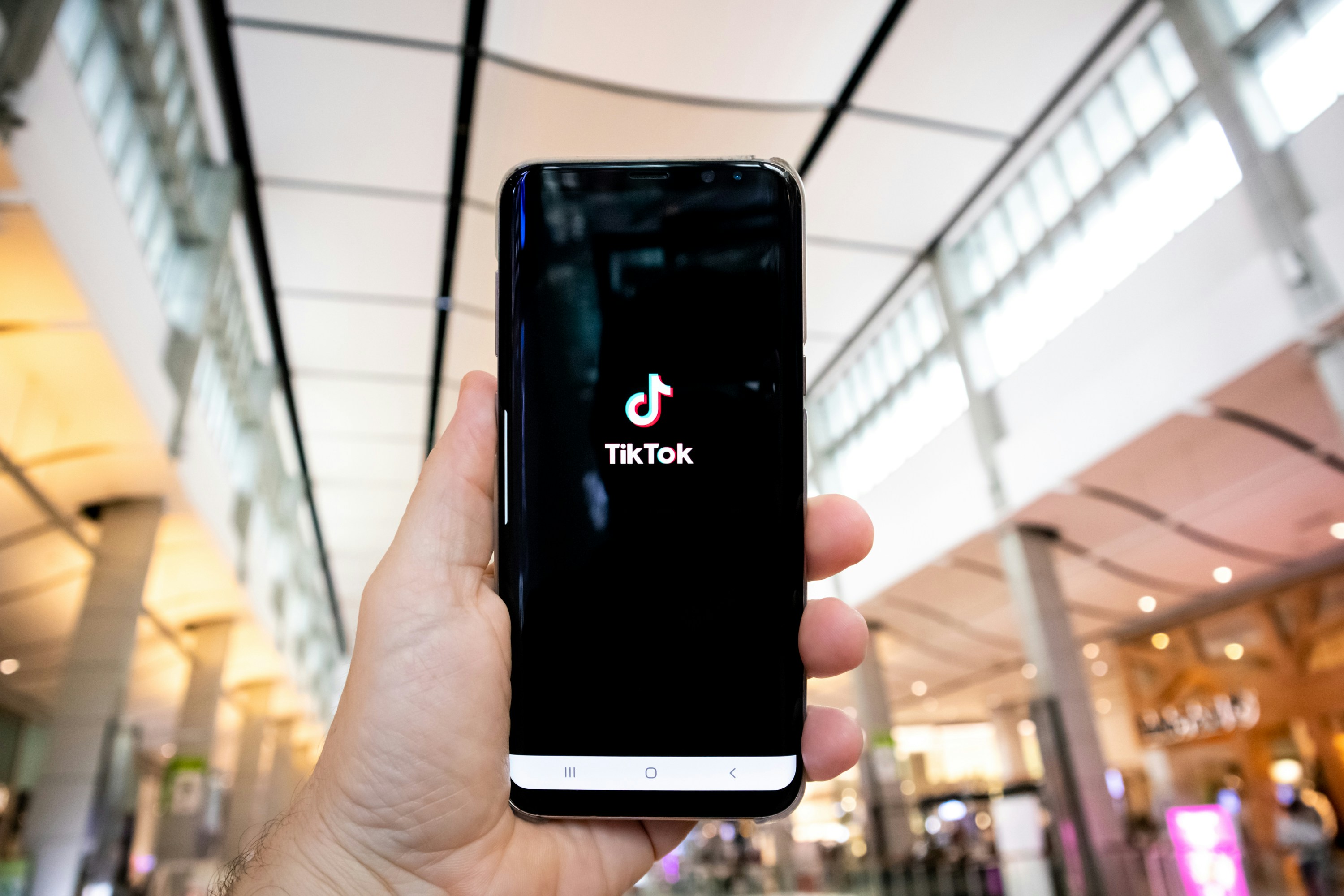Why You're Always Tired (Even After 8 Hours) and How to Fix It
Did you sleep “enough” last night, but you’re still chugging cold brew to survive your 3 PM meeting? Did your doctor say your labs are “fine,” but your body feels anything but? Did you just cancel plans (again), but you're sick of always missing out on the fun?
I get it. I'm Megan, I'm a registered dietitian, and I'm here to help you find the real reasons why you're stuck in this exhaustion loop and—finally—give you the science-backed, hormone-friendly tools you need to reclaim your energy!
Why Am I Still Tired?
You've Googled "chronic fatigue fixes" a dozen times, and the answers are always something like "sleep more!" or "just drink more water!" Generic advice like this falls short because chronic fatigue is rarely just about sleep.
Let's dig into three root causes I've seen first-hand with clients navigating everything from PCOS, GI issues, and burnout to start figuring out what's really going on:
1. Hidden Nutrient Deficiencies
Iron, B vitamins (like B12 and folate), and vitamin D aren’t just checkboxes on a lab report from your doctor. They're what your cells need to make energy.
- Iron is like your body’s Uber driver for oxygen—without it, your muscles and brain are stranded, leaving you foggy and dragging.
- B12 is like your brain’s WiFi signal—low levels mean slow processing, mood swings, and that “loading...” feeling.
- Vitamin D is like your immune system’s Amazon Prime—without it, prepare to suffer through inflammation, fatigue, and 2-5 day shipping.
Why You’re Still Dragging:
Desk jobs (RIP sunlight), overly restrictive “clean eating,” or even gluten-free diets (common with PCOS!) can quietly drain these nutrients. Labs often flag only severe deficiencies, but even normal labs can hide gaps.
2. Cortisol Imbalance
Cortisol (your body's main stress hormone) isn’t just “stress”—it’s supposed to help you wake up, focus, and wind down. But burnout, PCOS, or late-night doom-scrolling wrecks its rhythm:
- Morning grogginess happens because your cortisol “alarm” is broken.
- Afternoon crashes hit harder when your adrenals are exhausted from overproducing cortisol.
- Restless nights? High nighttime cortisol keeps you wired, even when you’re physically drained.
Why this matters for you:
Your body treats chronic stress (work deadlines, hormonal swings) like a constant threat. Over time, cortisol dysregulation burns through energy reserves, leaving you depleted. So that 3 PM crash every Friday, where you cancel plans? It’s your body begging for a reset.
3. Blood Sugar Swings
Your brain runs on glucose (sugar), but it needs steady fuel to keep you going. So habits like skipping breakfast, obsessing over cutting out all carbs, or relying on protein bars vs real meals can all be factors that trigger:
- Sugar spikes: Your bloodstream floods with glucose → insulin pumps and overcorrects it → energy plummets.
- Cravings: Your brain panics and demands a quick fix (Cue: office candy jar raids).
- Hormonal chaos: Erratic blood sugar stresses your adrenal systems and cranks up PCOS symptoms like bloat and breakouts.
Why You’re Stuck in the Crash Cycle:
Each blood sugar crash forces cortisol to stabilize your blood sugar, draining your energy even further. So that “healthy” low-carb lunch you force yourself to eat each day to lose weight for summer? If it’s missing protein, fiber, and fats, it’ll spike your sugar (and leave you snapping at Slack notifications by 2 PM.)
Your Energy Revival Plan
This isn't another list of tired tips. These fixes are proven, easy to follow, and designed to work with your body, not against it.
1. Fix Nutrient Gaps (Without Obsessing Over Perfection)
Your cells need real fuel to make energy, not just iced coffee or matcha. Here are some low-maintenance ways that you can start increasing the iron, vitamin B, and vitamin D you might be missing:
- Iron-Rich Meals: Pair iron-rich foods (grass-fed beef, lentils, spinach) with vitamin C (bell peppers, citrus) at meals to boost absorption. Avoid coffee/tea with meals because they can block iron absorption.¹
- Boost Your B12: Start adding eggs, salmon, dark leafy greens, or nutritional yeast (try sprinkling it on popcorn) to your meals. Vegan? Try adding a fortified plant milk.
- Sunlight Supplements: Walk outside 15 minutes midday (free vitamin D!). If you’re stuck indoors, a basic D3 supplement may also help, but I strongly recommend getting labs done to confirm deficiencies before starting high-dose supplements!
🌟 Pro Tip: Ask your doctor for full nutrient panels, not just standard ranges. “Normal” doesn't always mean optimal!
2. Do a Cortisol Reset
Your stress hormone isn’t broken—it’s just out of rhythm. Reset it with:
- Morning Light Therapy: Step outside (even if it's cloudy or if you have to be in your pajamas) within 30 minutes of waking up. Natural light can reset your body's natural rhythm by releasing energy-boosting hormones when you need them and dialing them down when you don't.
- Stress-Busting Snacks: Swap that handful of candy or protein bar for magnesium-rich snacks like dark chocolate and pumpkin seeds also to help lower cortisol.²
- The 4-7-8 Breath: Inhale 4 sec → hold 7 → exhale 8. Do this during meetings, traffic, or pre-bed TikTok spirals to calm your nervous system.
3. Balance Blood Sugar
Your brain loves steady fuel, not sugar spikes followed by crashes that leave you hangry and foggy. Here’s how to keep your energy stable all day:
- Stop Skipping Breakfast: Start with protein + fiber + healthy fats. Think: scrambled eggs with avocado and berries, or Greek yogurt with nuts and chia seeds. (No time? Prep hard-boiled eggs the night before!)
- Snack Smarter: Ditch processed bars loaded with sugar. Grab olives, a handful of almonds, or hummus with veggies instead.
- Pair Carbs Wisely: Carbs aren’t the enemy! Just add protein or fat. Example: apple + peanut butter, or sweet potato with grilled chicken.
- Hydrate with Electrolytes: Add a pinch of salt to your water (or sip coconut water) if you’re craving sweets or feeling dizzy. It helps stabilize energy faster than plain H2O.
4. Listen To Your Body
“Listen to your body” isn’t some vague, useless phrase. It’s a skill. Here are some ways to start tuning in and finding out what your body is actually telling you:
- Track Your “Triggers”: For 3 days, jot down meals, energy dips, and mood swings in a journal. Then look back and try to identify any patterns you can start to change, like: “Oatmeal breakfast = hangry by 11 AM.”
- Ask “What’s the Craving?”: Chocolate craving at 4 PM? Maybe you need sleep, not sugar. Exhausted post-Peloton? Your body might be begging for iron.
- Move With Energy: Swap “punishing” workouts for walks, dancing, or yoga. If it drains you, it’s not helping you.
Ready to Ditch Survival Mode?
No, I won't tell you to quit caffeine, meal prep 24/7, or meditate for an hour a day. As a hormone-savvy dietitian who's helped clients navigate burnout and hormonal chaos, I’m here to help you:
✅ Uncover the real cause of your fatigue (no more “normal” labs that feel anything but).
✅ Create a routine that fits your chaotic schedule (yes, takeout can still make appearances).
✅ Feel heard + supported because “try to relax” isn’t a plan.
Because you can wake up feeling good every day!
Ready to swap exhaustion for energy that lasts? Let’s chat! Your first 60-minute session with me is no cost to you!
Sources:
1. Morck, T. A., Lynch, S. R., & Cook, J. D. (1983). Inhibition of food iron absorption by coffee. The American journal of clinical nutrition, 37(3), 416–420. https://doi.org/10.1093/ajcn/37.3.416
2.Imamovic, M., Bäcklund, N., Lundstedt, S., Brattsand, G., Aardal, E., Olsson, T., & Dahlqvist, P. (2022). Confounding effects of liquorice, hydrocortisone, and blood contamination on salivary cortisol but not cortisone. Endocrine connections, 12(1), e220324. https://doi.org/10.1530/EC-22-0324










.png)